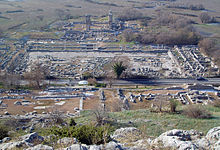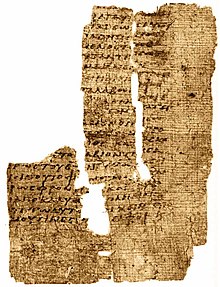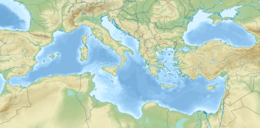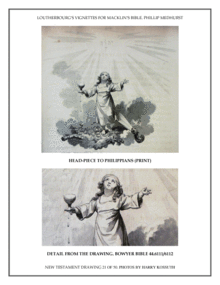- Birth Narratives: The stories of the Wise Men/Herod (Matthew) and the Shepherds/Census (Luke) are not in Q.
- Passion/Resurrection Narratives: The detailed accounts of Jesus's final days.
- Contextual Framing: Q is widely considered a "sayings gospel" lacking the narrative, chronological structure provided in the Gospels.
- Specific Miracles: While Q has some, many unique miracles are in Matthew/Luke's independent sources (M or L).
- The Lord’s Prayer (Matthew 6:9–13, Luke 11:2–4).
- The Beatitudes (Matthew 5:3–12, Luke 6:20–23).
- The Temptation of Jesus by the devil (Matthew 4:1–11, Luke 4:1–13).
- Sayings on judgment and the coming Kingdom.
Preface
Modern discussions of Christian origins often polarize around two competing instincts. One seeks to defend traditional doctrinal conclusions as timeless and complete from Christianity’s inception. The other attempts to peel back later theological developments in order to recover a supposedly simpler and more authentic Jesus. Both approaches, in different ways, flatten the historical texture of early Christianity.
This essay proceeds from a different assumption.
Early Christianity was not born with a finished Christology. It was born with an experience. That experience was gradually interpreted, narrated, theologized, and articulated across multiple conceptual registers. The earliest followers of Jesus did not begin by asking who Jesus was in himself. They began by asking what had happened among them and what God had done through Jesus.
Only later did ontological language emerge.
The purpose of this essay is not to adjudicate between competing source theories, nor to construct a systematic Christology. Its aim is more modest and more foundational. It seeks to trace the developmental movement from Jesus experienced as a prophetic voice to Jesus understood as more than a prophetic voice, the Son of God, God Incarnate. In doing so, it offers a historical and theological framework in which debates about Q, early Christology, and later incarnation language can be understood as stages within a single unfolding process of recognition.
Introduction
Scholars frequently describe research into early Christian sources as technical, specialized, and remote from contemporary theological concerns. Yet beneath discussions of textual relationships, hypothetical documents, and redactional layers lies a persistent human question.
What did the earliest followers of Jesus believe they had encountered?
This question does not arise first at the level of metaphysical speculation. It arises at the level of experience. The earliest Jesus-movements encountered a figure whose words, actions, and fate generated a profound sense that God had acted decisively within history. That conviction preceded doctrinal clarity. It preceded metaphysical precision. It even preceded agreed-upon narrative forms.
The question, therefore, is not whether early Christianity began with high Christology or low Christology. The more accurate question is how early communities gradually learned to speak about an encounter that exceeded their inherited categories, their prophetic grammars, their ideas about God.
This essay argues that early Christianity moved along a developmental arc: Jesus was first remembered and transmitted as a prophetic mediator of God’s reign. Following experiences interpreted as resurrection with ongoing presence, early communities increasingly found prophetic categories insufficient. Language expanded. Titles multiplied. Conceptual pressure grew. Divinity became a conclusion rather than an initial premise.
Recognized presence preceded recognized divinity.
The language of the early church had no language for Jesus' singularity. After reflection on Jesus' life, ministry, death, and resurrection, it expanded its language, its concepts, its theology, and its ontology.
This took decades....
And it is seen in the language of its earliest supposed hypothetical sources which began with Jesus' sayings (30-60 CE) then expanded under Paul (50-65 CE) and settled into the synoptics (65-90 CE) and later New Testament tracts (John et al, 90-110 CE).
I. The Developmental Arc (200 BCE → 160 CE)
A. Jewish Conceptual World (200–30 BCE)
Second Temple Judaism already had categories for:
- Prophets
- Spirit-filled teachers
- Wisdom personified
- Angelic mediators
- Messiah (royal, priestly, prophetic)
- Incarnation in a Greek metaphysical sense
- A divine-human hypostatic union
B. Earliest Jesus-Movements (30–60 CE)
Jesus remembered as:
- Spirit-anointed prophet
- Teacher of God’s reign
- Healer and exorcist
- Eschatological herald
- “Son of Man” (apocalyptic figure)
- “Servant”
- “Prophet like Moses”
- Pre-existent Logos
- Eternal Son in ontological sense
C. Pauline Expansion (50–65 CE)
Paul the Apostle - Paul’s letters show a major step forward:
- Jesus is exalted by God
- Jesus participates in divine activity
- Jesus shares in God’s name and glory
- God exalted Jesus.
- God gave him the name above every name.
D. Narrative Christology (65–90 CE)
Gospel of Mark
- Jesus as suffering Messiah
- Son of God declared at baptism and transfiguration
- Identity unveiled through the cross
Gospel of Matthew
Gospel of Luke
- Virgin conception
- Jesus as Son from birth
E. High Christology (90–110 CE)
Gospel of John
- Pre-existent Logos
- “The Word was God”
- Jesus consciously speaks from divine identity
F. Second-Century Consolidation (110–160 CE)
Church Fathers begin:
- Defending Jesus’ divinity against critics
- Clarifying relation between Father and Son
- Using Greek metaphysical vocabulary
II. The Question Beneath Q
The hypothetical Q source is typically defined as a collection of sayings shared by Matthew and Luke but absent from Mark. While debates about its existence-and-form continue, its significance does not rest primarily in its hypothetical status. Its significance lies in what the material attributed to it emphasizes.
The sayings of Jesus which are commonly associated with Q focus on ethical instruction, prophetic warning, and wisdom discourse. They present Jesus as announcing the nearness of God’s reign, calling for repentance, demanding radical love, and pronouncing blessing and woe. Narrative elements are sparse. Passion narratives are absent. Birth stories do not appear. Resurrection accounts are lacking.
This profile has often been interpreted as evidence of an early Jesus tradition unconcerned with Jesus’ divine identity. That conclusion, however, overreaches.
The more restrained inference is that the earliest recoverable layer of tradition reflects what communities first remembered as most urgent. They remembered what Jesus said and how he spoke. They remembered a voice that confronted, comforted, and summoned.
Q scholarship, at its best, is not asking whether Jesus was divine. It is asking what mode of remembrance came first.
The answer suggested by the material is that Jesus was first remembered as a voice speaking God’s will into concrete historical circumstances.
III. Jesus as Prophetic Voice
Within the Jewish tradition, prophets do not function primarily as predictors of distant futures. They function as bearers of divine message. They speak from within God’s concern for the covenantal life of the community. Their authority does not derive from philosophical argument but from perceived divine commission.
The earliest Jesus traditions portray him squarely within this prophetic stream. He announces God’s reign. He confronts injustice. He calls Israel back to covenantal fidelity. He speaks in parables, aphorisms, and warnings. He addresses everyday life while invoking ultimate accountability.
To describe Jesus as a prophet is not to reduce his significance. In Israel’s symbolic world, prophets stand at the boundary between heaven and earth. They mediate divine concern. They embody God’s pathos.
What is striking in the earliest sayings traditions is the intensity of Jesus’ authority. He does not merely interpret earlier prophets. He speaks as one who assumes direct access to God’s purposes. Yet no explanation is offered for this authority. It is simply encountered.
Presence is experienced before it is explained. In fact, this was the Jewish expectation. It was what they knew and knew how to identify with. They had not language for incarnation, divine birth, or global redemptive expiation.
IV. The Shock of Easter and the Expansion of Meaning
The execution of Jesus created a crisis. If Jesus were only a prophetic teacher, his death could be interpreted as tragic but final. Yet the earliest communities did not interpret it that way. In hindsight, they saw what they hadn't seen before while Jesus was living. This is all too clearly portrayed at Jesus' Last Supper with his disciples. When written of in the synoptic gospels it was the early church's language for saying, "We didn't understand who Jesus was until afterwards...."
Experiences interpreted as resurrection did not function primarily as proofs in an evidentiary sense. They functioned as catalysts for reinterpretation. They convinced early followers that Jesus’ significance had not ended with his death. God had vindicated him.
This conviction generated new questions.
- If God has vindicated Jesus, what does that imply about who Jesus was?
- Why does his presence feel ongoing and not concluded?
- Why does devotion to Jesus seem inseparable from devotion to God?
These questions did not arise in the abstract. They arose because experience exerted pressure on inherited categories.
Prophetic language, while still valid, began to feel insufficient. The followers of Jesus needed a new grammar.
V. From Voice to Presence
A subtle but decisive shift occurs in early Christian language.
Jesus is no longer only one who speaks God’s word. He is increasingly spoken of as one in whom God’s presence is somehow concentrated. Not "a voice of God" but "THE Voice of God"!
Early Christian texts begin to attribute to Jesus' activities as associated with God alone as seen in the later developed Gospel texts:
- Forgiveness of sins.
- Authority over ultimate destiny.
- Mediation of salvation.
- Participation in divine glory.
This stage is best described as functional Christology. Jesus does what God does. Jesus exercises divine prerogatives. Yet these affirmations remain largely relational rather than metaphysical. They describe what Jesus does and how Jesus functions within God’s saving activity. They do not yet specify what Jesus' Person is in ontological terms.
Function precedes essence.
VI. Why Divinity Language Emerges
Divinity language emerges not from speculative curiosity but from conceptual necessity.
Early communities discover that prophetic categories cannot carry the full weight of their experience. Exalted human (sic, supra-human) categories strain. Angelic categories strain. Wisdom language stretches but still does not fully suffice.
The question becomes unavoidable.
What kind of reality must Jesus participate in if God’s own life is disclosed through him?
Incarnated Divinity becomes the strongest available language capable of naming that depth of participation. It is not introduced to elevate Jesus artificially. It is introduced because weaker language collapses under the pressure of experience.
Divinity is a theological conclusion.
VII. "Q" Reconsidered
Seen within this framework, Q does not represent a community that denied Jesus’ significance. It represents a community living closest to the earliest register of Jesus's reframed-recognition.
- Jesus as prophetic mediator of God’s reign.
- Jesus as bearer of Divine authority.
- Jesus as God's Voice.
Later traditions live closer to subsequent, conclusding/summarizing registers.
- Jesus as exalted presence.
- Jesus as participant in divine identity.
- Jesus as incarnate Logos.
These are not competing Jesuses. They are successive interpretive stages responding to the same encounter but across differing eras. The earliest eras were trying to understand Jesus... the later eras centuries later were summarizing all those newly birthed grammars they had inherited.
VIII. Development Without Contradiction
Early Christianity did not face a binary choice between Jesus the prophet and Jesus the divine. Its actual movement can be traced as a continuum.
- Prophetic voice.
- Transparent mediator.
- Exalted Lord.
- Participant in divine identity.
- Incarnate Word.
Each stage presupposes the earlier one. None cancels out the ones previous to it. Development does not equal invention. It equals better, more eloquent articulation according to the era that it is speaking within.
Conclusion
The earliest followers of Jesus did not begin by asking who Jesus was in himself. They began by asking what God had done among them. Their language grew as their reflection deepened. Their categories expanded as experience demanded more adequate expression.
Recognized presence preceded recognized divinity.
This historical pattern does not weaken Christian faith. It clarifies it. It locates Christology not in speculative abstraction but in lived encounter. It shows doctrine arising from devotion, theology emerging from experience, and metaphysics following worship.
Early Christianity learned to speak about Jesus because it first learned TO LISTEN, THEN EXAMINE, what had happened through him.
Christ as Becoming
Heard first as a Voice in the wildernessThose who heard spoke
They named what was loved -
Bibliography
Bauckham, Richard. Jesus and the God of Israel: God Crucified and Other Studies on the New Testament’s Christology of Divine Identity. Grand Rapids: Eerdmans, 2008.
Borg, Marcus J. Conflict, Holiness, and Politics in the Teachings of Jesus. New York: Continuum, 1998.
Dunn, James D. G. Christology in the Making: A New Testament Inquiry into the Origins of the Doctrine of the Incarnation. 2nd ed. Grand Rapids: Eerdmans, 1996.
Ehrman, Bart D. How Jesus Became God: The Exaltation of a Jewish Preacher from Galilee. New York: HarperOne, 2014.
Horsley, Richard A. Jesus and the Spiral of Violence. Minneapolis: Fortress Press, 1993.
Kloppenborg, John S. Excavating Q: The History and Setting of the Sayings Gospel. Minneapolis: Fortress Press, 2000.
Mack, Burton L. The Lost Gospel: The Book of Q and Christian Origins. San Francisco: HarperSanFrancisco, 1993.
Wright, N. T. The Resurrection of the Son of God. Minneapolis: Fortress Press, 2003.
Appendix A
- Ancient, original, and directly continuous with apostolic belief.
- Later theological syntheses projected backward as summaries of earlier faith.
Creeds as Retrospective Theological Syntheses
Early Christian creeds are often treated as if they offer direct access to the beliefs of the earliest Jesus-movements. Their antiquity, liturgical use, and authoritative status can create the impression that they function as transparent windows into first-century Christian consciousness. Historically, however, creeds operate in a different register.
Creeds are not origin documents.
They arise at moments of doctrinal contestation in order to stabilize communal identity, exclude interpretations judged unacceptable, and provide shared language for worship.
As such, creeds preserve later theological conclusions, not the full developmental pathways by which those conclusions emerged.
---
The historical sequence traced in this essay moves:
from Experience --> Interpretation --> Ontological articulation
from Encounter with Jesus → Recognition of divine presence → Functional language → Ontological language.
Creeds reverse this order rhetorically. They begin with settled metaphysical claims about God and Christ and present these claims as the grammar of faith itself. This rhetorical reversal can obscure the earlier, more fluid stages of Christian reflection in which Jesus was first encountered as prophetic voice and only gradually interpreted as more-than-prophetic presence.
This does not render creeds false or illegitimate. Rather, it situates them properly as compressed theological crystallizations. They function like final paragraphs of a long argument. But when mistaken for the entire historical argument, distortion occurs. However, when creedal development is read as historic summaries, or conclusions, drawn from centuries of reflection, their purpose becomes clearer.
Seen in this light, historic creeds may be understood as retrospective syntheses. They gather together multiple streams of earlier interpretation and present them in stabilized form. They speak from the vantage point of theological maturity, not from the vantage point of initial encounter.
Recognizing this historical dynamic allows contemporary readers to honor the creeds without confusing them with the earliest layers of Christian experience. It also restores visibility to the developmental process by which early communities learned to speak about Jesus. That process moves not from doctrine to experience, but from experience to doctrine.













